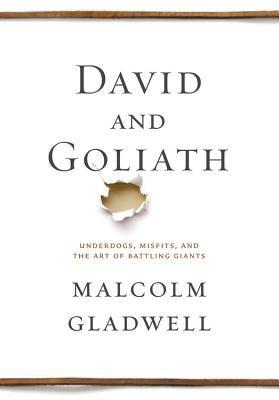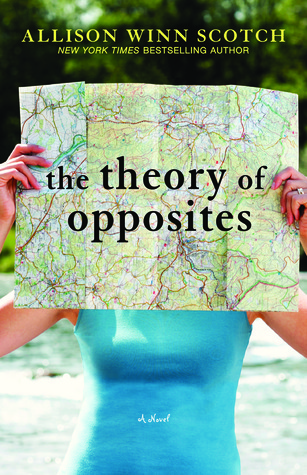When I picked reads three and four for this year's 52 books in 52 weeks, I wasn't really thinking that they'd have anything to with one another; they were merely two books I wanted to read. The first is Malcolm Gladwell's latest, David and Goliath, and the second was Allison Winn Scotch's The Theory of Opposites.
David and Goliath follows the now well-trod path that Gladwell has travelled in The Tipping Point, Blink and Outliers: find something that seems self-evident and turn it on its head. The conceit at the centre of this book is the lesson we've all absorbed from David and Goliath: that against all odds, sometimes the little guy can win. But was it really against all odds, Malcolm challenges? What if David actually tricked Goliath into fighting on David's terms, and that's why he won? And what do we learn from that if that's the case? While not my favourite book of Gladwell's (that remains The Tipping Point) I enjoyed his foray into long-standing beliefs that may nor may not be true. As always, the writing is clear and accessible and often funny.
Allison Winn Scotch's latest book explores a woman who is the victim of her father's best-selling self-help success. His philosophy? A version of 'everything happens for a reason' that translates, at least for our main character, Willa, into the idea that there's not much point in making choices in life because whatever's going to happen will happen anyway. The absence of choice turns out to be a fairly paralyzing way to live, especially when your husband decides that it's time to take a bit of time off to see if you really are meant to be. Willa's journey to discovering what she's meant to be is funny and insightful.
So, what do these two books have in common? Well, not to get too deep or anything, but I think both books make the point that we shouldn't just accept the things people say just because they say them often. The idea, for instance, that "everything happens for a reason" is ubiquitous in our society. It is offered up in times of adversity, grief and in face of the unexplainable as a way of giving comfort. But if we apply Gladwell's analysis to this, does it stand up? What does it even mean, really? That it doesn't matter what we do? That even if we can't see the master plan, there is one and so the awful things that happen in our lives will bring us somewhere better sometime down the line? And what's the consequence of accepting this? Is there no point in trying, deciding, challenging what happens to us?
Bottom line: whether it's based on science or just an author's imagination and intuition, the tested and true explanation is not always right and not always helpful.
Okay! Philosophy class over.
The next two group reads are Stephanie Elliot's What She Left Us and Ania Szado's Studio Saint-Ex.
Read on.


